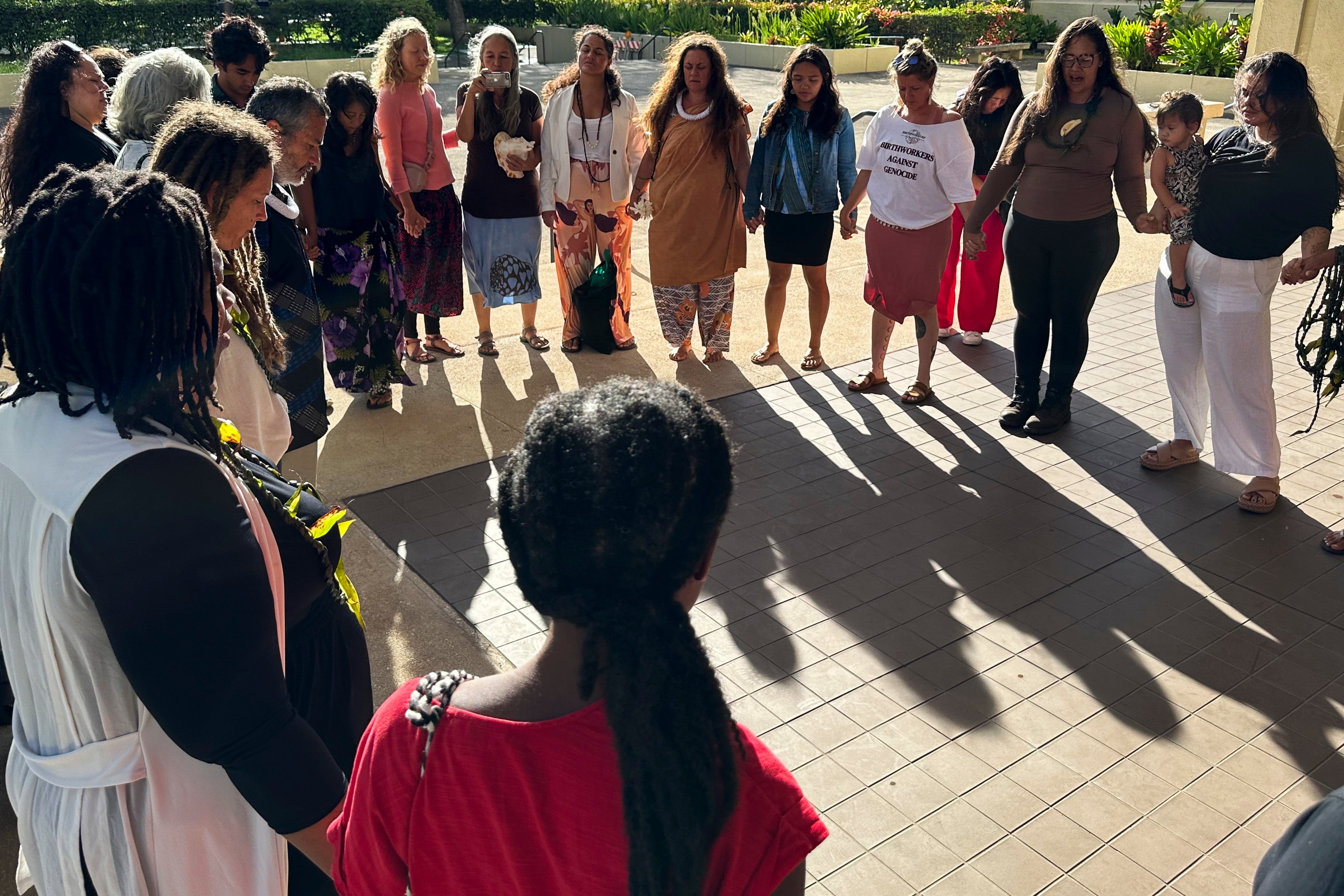Judge's ruling temporarily allows for unlicensed Native Hawaiian midwifery
A Hawaii judge is temporarily blocking the state from enforcing a law requiring the licensing of practitioners and teachers of traditional Native Hawaiian midwifery

A Hawaii judge has temporarily blocked the state from enforcing a law requiring the licensing of practitioners and teachers of traditional Native Hawaiian midwifery while a lawsuit seeking to overturn the statute wends its way through the courts.
Lawmakers enacted the midwife licensure law, which asserted that the “improper practice of midwifery poses a significant risk of harm to the mother or newborn, and may result in death,” in 2019. Violations are punishable by up to a year in jail, plus thousands of dollars in criminal and civil fines.
The measure requires anyone who provides “assessment, monitoring, and care” during pregnancy, labor, childbirth and the postpartum period to be licensed.
A group of women sued, arguing that a wide range of people, including midwives, doulas, lactation consultants and even family and friends of the new mother would be subject to penalties and criminal liability.
Their complaint also said the law threatens the plaintiffs' ability to serve women who seek traditional Native Hawaiian births.
Judge Shirley Kawamura issued a ruling late Monday afternoon barring the state from “enforcing, threatening to enforce or applying any penalties to those who practice, teach, and learn traditional Native Hawaiian healing practices of prenatal, maternal and child care.”
Plaintiffs testified during a four-day hearing last month that the law forces them to get licensed through costly out-of-state programs that don't align with Hawaiian culture.
The law constitutes a deprivation of Native Hawaiian customary rights, which are protected by the Hawaii constitution, Kawamura's ruling said, and the “public interest weighs heavily towards protecting Native Hawaiian customs and traditions that are at risk of extinction.”
The dispute is the latest in a long debate about how and whether Hawaii should regulate the practice of traditional healing arts that date to well before the islands became the 50th state in 1959. Those healing practices were banished or severely restricted for much of the 20th century, but the Hawaiian Indigenous rights movement of the 1970s renewed interest in them.
The state eventually adopted a system under which councils versed in Native Hawaiian healing certify traditional practitioners, though the plaintiffs in the lawsuit say their efforts to form such a council for midwifery have failed.
The judge also noted in her ruling that the preliminary injunction is granted until there is a council that can recognize traditional Hawaiian birthing practitioners.
“This ruling means that traditional Native Hawaiian midwives can once again care for families, including those who choose home births, who can’t travel long distances, or who don’t feel safe or seen in other medical environments,” plaintiff and midwife trainee Makalani Franco-Francis said in a statement Wednesday. "We are now free to use our own community wisdom to care for one another without fear of prosecution.”
The judge found, however, that the state's regulation of midwifery more broadly speaking is “reasonably necessary to protect the health, safety, and welfare of mothers and their newborns."
The ruling doesn't block the law as it pertains to unlicensed midwives who do not focus on Hawaiian birthing practices, said Hillary Schneller, an attorney with the Center for Reproductive Rights, which represents the women. “That is a gap that this order doesn’t address.”
The case is expected to continue to trial to determine whether the law should be permanently blocked.
The state attorney general's office didn't immediately respond to an email seeking comment on the ruling Wednesday.
Bookmark popover
Removed from bookmarks